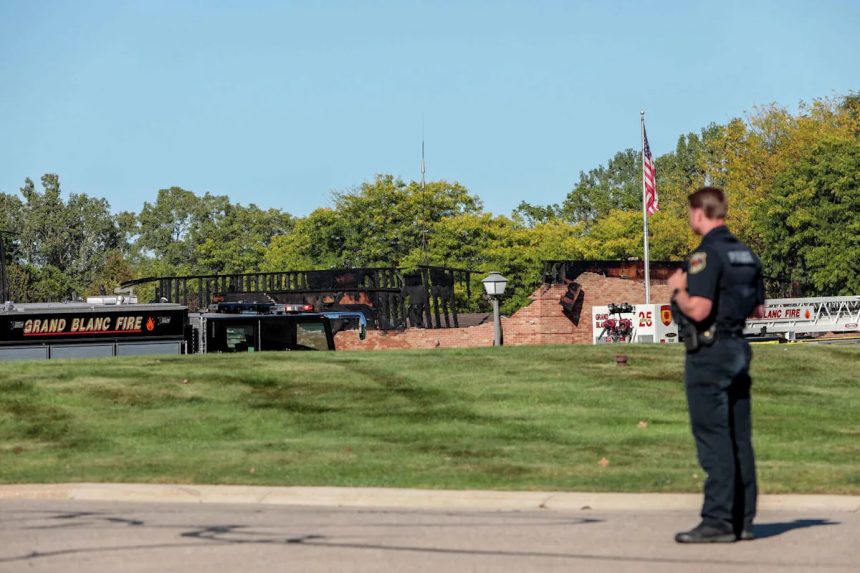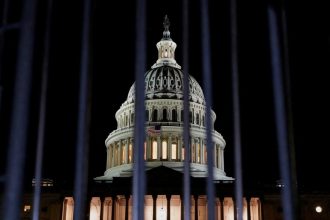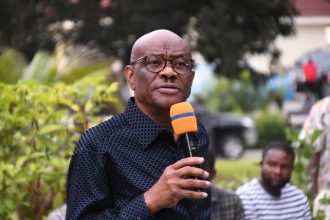In light of the recent attacks on houses of worship throughout the country, faith leaders in Connecticut continue to assess their security measures while also attempting to maintain a welcoming environment for worshipers.
At least four people were killed after a driver of a pickup truck with two American flags mounted on its bed smashed into a Church of Jesus Christ of Latter-day Saints building in Michigan before he got out and started shooting.
The attacker, identified by authorities as former U.S. Marine Thomas Jacob Sanford, may have used gasoline to start a subsequent fire at the church before he was shot and killed by police, according to police and media reports.
With attacks at places of worship becoming more common, the state of Connecticut has provided millions of dollars to help faith leaders keep their congregations safe while attending services.
Over the years, the Jewish Federation of Greater Hartford has built a coordinated community-wide security program with an emphasis on being prepared, aware and in partnership with law enforcement, the federation’s President and CEO David Warren said.
“We take the safety of everyone who walks through our doors very seriously,” he said. “It’s about making sure people can come together confidently, knowing that safety is a shared priority.”
Security at the federation’s synagogues has shifted from ad hoc to professional, strategic and ongoing, Warren said.
“We now have a comprehensive system in place that is continually updated as threats evolve,” he said. “Perhaps just as important, we’ve built strong partnerships across the community – including with churches and other houses of worship – so that we’re sharing expertise and learning from one another.”
However, “security is not static,” Warren said, so his organization is consistently reassessing and making improvements as needed.
These measures include ongoing training, planning and collaboration within the Jewish community and with interfaith partners, he said.
Providing a welcoming, open environment and ensuring the safety of worshipers is also a priority of faith leaders.
“There’s always a balance between vigilance and openness,” Warren said. “Our goal is to create environments that are both secure and welcoming. We want people to feel safe enough to participate fully in community life, and to know that safety and hospitality can go hand in hand.”
Prevention tactics and security funding
The Connecticut Intelligence Center through the state’s Department of Emergency Services and Public Protection facilitates the receipt, analysis and dissemination of criminal, terrorism and cybersecurity information and intelligence. It uses those tools to help identify, respond, prevent and mitigate unlawful activity.
CTIC Director Evan Allard said the emergency services department “highly prioritized outreach to the communities,” including participating in regional security meetings with houses of worship and law enforcement agencies.
For example, information was recently provided to law enforcement agencies throughout the state detailing the Jewish High Holy Days and the likelihood of large crowds at synagogues at particular times and days
A significant part of combating potential violence is attempting to stop incidents before they occur, which Allard said has been a priority in recent years.
The the emergency services department has a threat assessment team that aims to identify individuals who may be on the “radicalization path” and address them before they become violent, he said.
The hope is to find someone early enough to divert their potential violence, but much like when a response to severe weather is successful, it’s difficult to know the full impact of preemptive action.
“You’ll never know 100% whether you’ve stopped an act of violence,” Allard said.
Brenda Bergeron, deputy commissioner of DESPP and overseer of the state Department of Emergency Management and Homeland Security, said the state employs a strategy to eliminate potential targeted violence in several ways.
These include supports for mental health and schools and educating parents on indicators they may see in their children, she said.
Faith leaders are encouraged to contact local safety officials to make sure they are aware of the institutions in their community, exchange contact information to ensure they work collaboratively and conduct a vulnerability assessment, Bergeron said.
The federal government began security grants for nonprofits in 2018 and Connecticut’s program began in 2021, which help pay for surveillance cameras, solid doors, entry door buzzers, panic alarms, entry vestibules and metal detectors.
While the federal government determines its own priorities when awarding grants, Connecticut has institutions conduct their own self-assessments on the likelihood of threats and prioritizes awards accordingly, Bergeron said.
Ultimately, “we get far more applications than we’re able to fund,” but there is a steady stream of state funding to continue to assist houses of worship and other nonprofit organizations.
In August, the U.S. Department of Homeland Security awarded $110 million to more than 600 faith-based organizations and other nonprofits throughout the country.
The funding, administered through FEMA’s Nonprofit Security Grant Program, is allowed to be used for security enhancements, and was provided to a diverse group of faiths, including Christian, Muslim, Hindu, Buddhist, Sikh and Jewish affiliated institutions.
Vulnerability assessments are an overarching examination of the security of facilities to help determine areas of risk.
The Connecticut State Police also lead a hate crimes initiative that includes meeting with religious leaders to collaborate with on combating hate crimes, Allard said.
Unity in the face of tragedy
The shooting and arson in Michigan is “a sobering reminder that the threat of extremism and violence is real and not limited to any one community,” said Warren, from the Jewish Federation of Greater Hartford.
Security should be a priority for leaders of all faiths, he said.
“We stand shoulder to shoulder with churches and other houses of worship because we all face these challenges together,” Warren said. “Ultimately, this work is about resilience. We refuse to let fear define us; instead, we invest in safety so our communities can remain open, vibrant and welcoming.”
Doug Andersen, spokesman for the Church of Jesus Christ of Latter-day Saints, said the church is in communication with Michigan law enforcement as the investigation continued.
“We are deeply grateful for the outpouring of prayers and concern from so many people around the world,” he said. “In moments of sorrow and uncertainty, we find strength and comfort through our faith in Jesus Christ. Places of worship are meant to be sanctuaries of peacekeeping, prayer and connection. We pray for peace and healing for all involved.”









